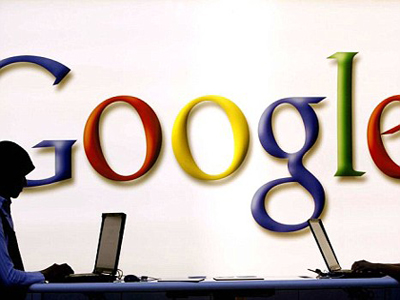Google Not Building Additional Windows 8, WP8 Apps For Now
Google currently has no plans to develop apps for Windows 8 and Windows Phone 8.
Get Tom's Hardware's best news and in-depth reviews, straight to your inbox.
You are now subscribed
Your newsletter sign-up was successful
Looking for an app to check your Gmail account or access Google Drive from your new Windows PC or Windows Phone 8 device? Look no further, as Google will likely not churn out dedicated apps for its services on those two platforms for some time to come due to a perceived lack of interest.
"We have no plans to build out Windows apps," said Clay Bavor, product management director at Google Apps, in an interview with v3. "We are very careful about where we invest and will go where the users are but they are not on Windows Phone or Windows 8."
Currently the only two official Google apps offered in the Windows Store is Google Chrome and Google Search. This is likely due to Google wanting to steer users away from Microsoft's own Bing and Internet Explorer 10 which comes packed in the new Windows Modern UI overlay. All other Google services can be accessed the traditional way, or through third-party apps.
During the interview Bavor stressed that there are no plans to bring Gmail and Google Drive to the new Microsoft platforms. Still, if there's enough interest, Bavor said that Google will be willing to adapt. For now, Android and iOS are taking the "brunt" of the company's focus, and that will likely intensify in 2013.
"In 2012 we've laid some of the ground work and really improved the experience of our core apps on mobile devices," he said. "We really see these as the first versions of our mobile experience, though, so we will continue to make big investments in mobile in 2013 with the goal of having beautiful mobile apps."
Google is partially focused on its mobile offerings because the enterprise sector is slowly shifting into the cloud and utilizing multiple devices that access cloud-based data. Executives and staff are turning to laptops, tablets and smartphones in addition to their desktops to remotely access spreadsheets, edit documents and more.
The only way to address this multi-device user is to establish a consistent cloud architecture that delivers data to all devices and keeps the apps up-to-date. But as it stands now, the majority of the businesses will not have upgraded to Windows 8 in 2013 due to the new interface, and the new platform isn't exactly selling like iPads in the consumer sector.
Get Tom's Hardware's best news and in-depth reviews, straight to your inbox.
To read the full interview, head here.

Kevin Parrish has over a decade of experience as a writer, editor, and product tester. His work focused on computer hardware, networking equipment, smartphones, tablets, gaming consoles, and other internet-connected devices. His work has appeared in Tom's Hardware, Tom's Guide, Maximum PC, Digital Trends, Android Authority, How-To Geek, Lifewire, and others.
-
joytech22 KyuuketsukiWhy exactly do I need all these dedicated Google apps on my Windows Phone again?Reply
Because if you are coming from the Android ecosystem it makes migration easier.
Now that most of that stuff isn't available through apps, I'm less inclined to get a Lumia 920.
That and I'll lose all of my Google app Purchases. -
weierstrass KyuuketsukiWhy exactly do I need all these dedicated Google apps on my Windows Phone again?I totally agree, why do we need those apps when nobody else is using Windows based phones beside your?Reply -
WithoutWeakness atikkurAnother reason not to use win8.Do you have dedicated GMail and Google Maps apps on your Windows 7 computer?Reply -
twelve25 makes sense. Google isn't going to help Microsoft gain traction. If they do end up gaining a sizable user base, then demand will force Google to make apps for Windows phones.Reply
And whoever said they'd lose their google apps purchases, that's a given considering those apps won't run on a windows OS. -
bhaberle Oh well. They will back down and make it eventually, or a third party will. Water under the bridge.Reply -
Bluestacks may help with that issue of google app purchases, but that's only maginally useful to some users.Reply
Also there's no reason to complain when you can use a web version which we've probably have been using long before dedicated apps. -
3dsmaxusr01 The Mail app seems to work well. When I add my gmail account it sets it as imap and you see notifications in the live tile.Reply
